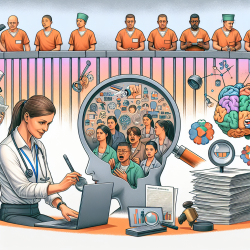Unlocking the Potential of Medicaid Managed Care for Children's Healthcare
In the quest to provide effective healthcare solutions for children, Medicaid Managed Care has emerged as a pivotal component. As speech-language pathologists and healthcare providers, understanding the intricacies of managed care can significantly enhance our ability to deliver quality care. The research article titled “Second-Generation” Medicaid Managed Care: Can It Deliver? offers critical insights into the evolving landscape of Medicaid managed care and its potential to improve healthcare delivery.
Key Findings from the Research
The study conducted by Gold and Mittler (2000) delves into the performance of second-generation Medicaid managed care programs across seven states. The research aimed to address three critical questions:
- Does experience in managed care facilitate program operations?
- Can Medicaid managed care deliver on important healthcare goals?
- Can the program be extended beyond low-income families and children to other groups?
The findings suggest that while Medicaid managed care is not a panacea for all healthcare challenges, it can be a valuable tool in improving care delivery when implemented with a long-term commitment and adequate resources.
Implications for Practitioners
For practitioners working with children, particularly in speech-language pathology, the implications of this research are profound. By leveraging the insights from Medicaid managed care, practitioners can:
- Enhance access to care for children by understanding the managed care landscape and advocating for necessary resources.
- Improve care coordination by collaborating with managed care organizations to streamline service delivery.
- Encourage ongoing professional development to stay informed about managed care policies and their impact on service provision.
Encouraging Further Research
While the research provides valuable insights, it also highlights the need for further exploration into the impact of Medicaid managed care on specific populations, such as children with special healthcare needs. Practitioners are encouraged to engage in continuous learning and research to better understand how managed care models can be optimized for pediatric populations.
In conclusion, Medicaid managed care holds promise for enhancing healthcare delivery for children, but it requires a concerted effort from practitioners, policymakers, and managed care organizations to realize its full potential. By staying informed and actively participating in the managed care dialogue, practitioners can contribute to better health outcomes for the children they serve.
To read the original research paper, please follow this link: “Second-Generation” Medicaid Managed Care: Can It Deliver?










